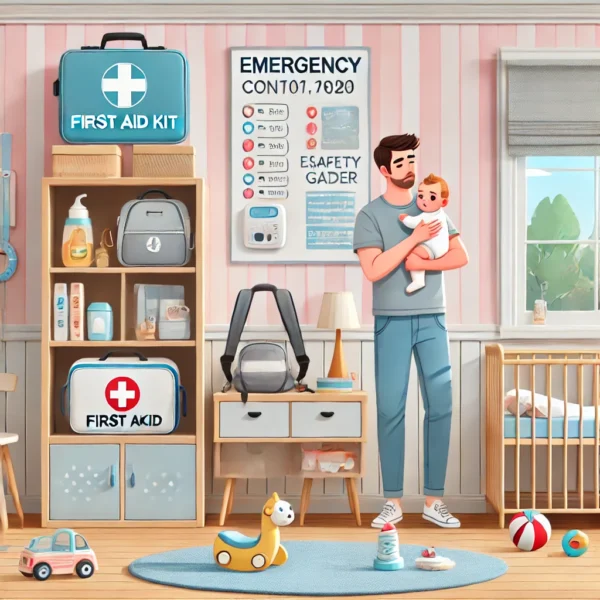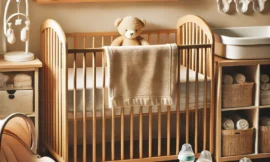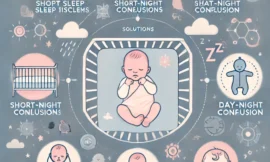Emergency Preparedness for Baby Care: Essential Tips for Parents

Being prepared for emergencies is crucial when caring for a baby. From sudden illnesses to accidents, knowing how to respond quickly can make all the difference. Here’s a guide to help parents create an emergency plan and ensure the safety of their little one.
1. Learn Basic First Aid and CPR
Learning infant-specific first aid and CPR is vital. These skills can help you respond to emergencies such as choking, drowning, or when the baby stops breathing.
- CPR: Focus on gentle chest compressions and rescue breaths for infants. Consider taking a course to feel confident in applying these techniques.
- Choking First Aid: Knowing how to dislodge objects safely from a baby's airway is critical.
2. Have an Emergency Kit Ready
Every home with a baby should have a well-stocked first aid kit. Ensure your kit contains the following:
- Infant thermometer
- Baby pain reliever (consult a pediatrician for appropriate types and doses)
- Antiseptic wipes and ointment
- Sterile bandages and gauze
- Saline drops and nasal aspirator for clearing the baby’s nasal passages
- Tweezers and baby nail clippers (for splinters or trimming nails)
3. Keep Emergency Contacts Handy
Post a list of emergency phone numbers where they are easily accessible. Include:
- Pediatrician’s contact number
- Poison control hotline
- Nearest hospital or emergency clinic
- Family members or trusted neighbors
4. Baby-Proof Your Home
Minimize risks by baby-proofing your home. Secure furniture, cover electrical outlets, and ensure dangerous items like medications, cleaning products, and small objects are out of reach.
- Install baby gates at the top and bottom of stairs.
- Use cabinet locks to prevent access to harmful substances.
- Keep emergency items like fire extinguishers and flashlights in easily accessible places.
5. Create a Family Emergency Plan
In case of fire, natural disasters, or other emergencies, have a clear family plan that includes:
- Escape routes: Know how to quickly and safely exit each room with your baby.
- Meeting point: Designate a safe place outside the house where family members can meet.
- Emergency contacts: Ensure all family members know how to contact each other during an emergency.
6. Monitor Health Signs
Babies can’t communicate how they feel, so it’s important to recognize signs of illness or distress:
- Fever: A temperature of 100.4°F (38°C) or higher is considered a fever in infants and may need medical attention.
- Breathing: Watch for labored breathing, wheezing, or flaring nostrils, which could indicate respiratory problems.
- Vomiting or Diarrhea: Persistent vomiting or diarrhea can lead to dehydration and requires medical care.
7. Emergency Evacuation Kit
Prepare an evacuation kit for your baby in case you need to leave home unexpectedly. Include:
- Diapers, wipes, and diaper cream
- Formula or breast milk (in portable containers)
- Bottles, pacifiers, and baby blankets
- Baby clothes, hats, and socks
- Baby carrier or sling for hands-free transport
8. Stay Calm in Emergencies
Babies are sensitive to their caregivers’ emotions. Staying calm during an emergency will help you think more clearly and avoid causing further stress for your baby.



